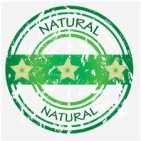Biodegradable means: materials that have the ability to decompose naturally. Please note there is no legal definition for biodegradable as it applies to soap, so this is again a subjective term.
We know homemade soap is better for our skin and our finances. Handmade soap does not contain detergents or phosphates. Phosphates have been found to be a major polluter of lakes and streams.

Homemade soap is a safer, better product for the environment because it is biodegradable. The ingredients used in homemade soaps will degrade over time. You can tailor the ingredients to ensure that your soap is eco-friendly.
Here are the descriptions of some of the ingredients in handmade soap:
Lye
Lye (sodium hydroxide) is a necessary ingredient for making your homemade soap. It reacts with the oils in the recipe to transform them into a useable soap. The saponification process makes this ingredient safe for your skin.
Vegetable oils
Most any vegetable oil can be used to make biodegradable soap as all vegetable oils are biodegradable. Some ideal oils to use are coconut oil, olive oil, and soybean oil. Olive oil is especially beneficial for skin even in its natural state. This is something to think of when making soap. Follow this link for some simple single oil soap recipes.
Animal fats
Animal fat can be used in place of vegetable oil to make soap, but you will have to render the fat first. Animal fat was used to make soap long before vegetable oils were available. However, if you are a vegetarian this idea may not appeal to you. Find lard soap recipes here.
Essential oils
Essential oils are often added to soap to add some environmentally safe fragrance. Oil of peppermint and lavender oil are examples of this. There are many others that can be added. It all depends on what scent you like.
Distilled water